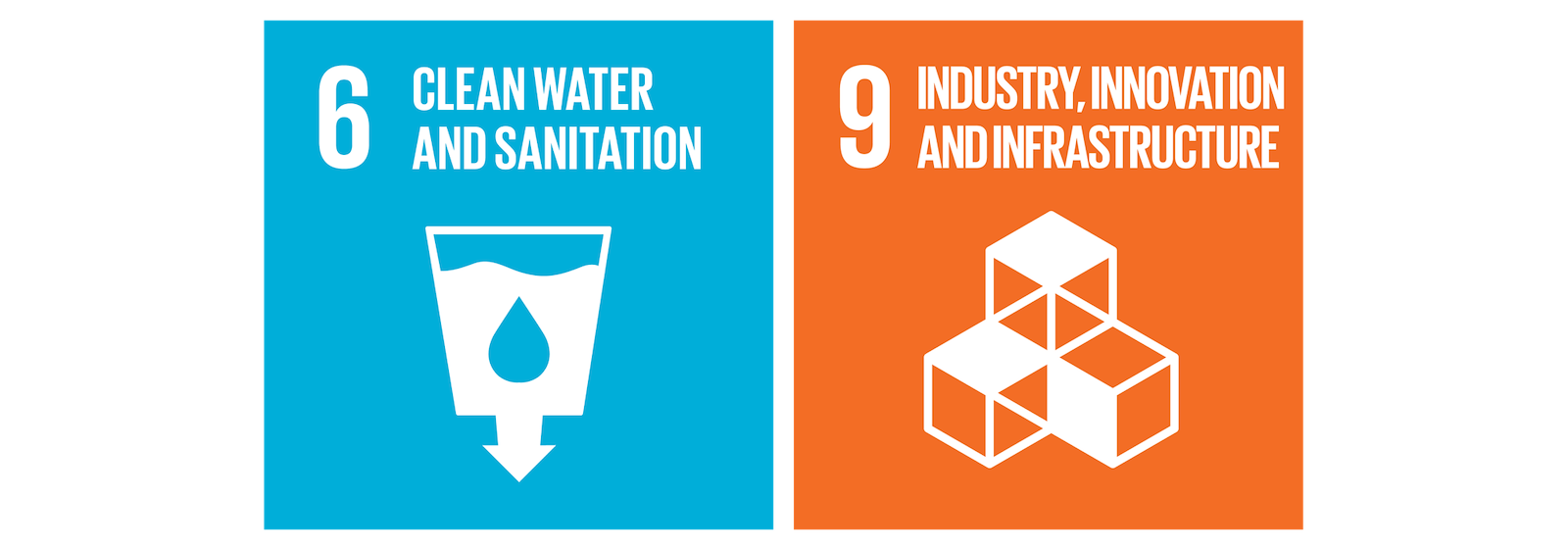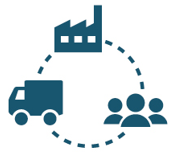Society


We aim to contribute towards a better socioeconomic environment by applying innovative solutions to ABPs and ECPs
The animal by-products processing industry’s established role in the animal-based food value chain and our circular bioeconomy credentials are generally unknown yet we make a significant contribution to society every day and have a great story to tell.
We are a professional and responsible industry
EFPRA members are a significant employer in many rural areas and our industry is economically relevant and viable (>3 billion euros turnover/ year) with global markets for our products and blue-chip customers. Our local partners in the value chain who rely on our services employ significantly more and this provides support to our farmers and rural economies. Our valued, skilled staff have excellent career development opportunities and rewarding roles so staff retention rates are high.
Processing ABP in Europe is a highly regulated industry which operates to the highest standards in the world. Where possible we go beyond compliance with our permits and licences, using modern, reliable, state of the art facilities and technologies to produce our products efficiently and to prevent or minimise emissions to the environment. This ensures we operate within our environmental boundaries, helping protect local watercourses and air quality in harmony with our neighbours.
Our management systems address environmental, quality, health and safety, and energy management aspects and there is wide adoption of accredited systems to recognised international standards, including quality certification of our products such as QS and GMP+ for feed and ISCC PLUS sustainability certification for biofuel.
Promoting animal health and welfare
EFPRA recognises its animal health and welfare responsibilities and we contribute to this through the animal health benefits of our products and disease control. Our supply chain partners also have an important role in providing quality care for livestock and EFPRA is committed to supporting humane animal treatment via feedstuffs, pasture management, handling, transportation and slaughter practices. View Case Study 14.
We trust and rely on livestock and animal feed producers to adhere to the legal requirements on animal welfare and verification of compliance throughout the value chain. EFPRA strongly supports implementation and enforcement of animal welfare legislation as outlined by the World Organization for Animal Health, the European Commission and its Member States.
We are innovative and adapt to societal changes
Our resilience and adaptability during the COVID-19 pandemic enabled our ABP collection and processing facilities to remain operational throughout, helping keep the food supply chain running, ensuring food availability on the shelves while guaranteeing animal welfare.
We also have to adapt to changes in consumer demand and EU policies. One challenge we face is the growing trend for low meat diets or meat substitutes at a time when we are trying to increase the use of sustainable ABP derived products in animal feed. EFPRA will continue to provide clear, accurate information on our products and industry to assist well informed consumers in making educated choices based on the social, nutritional, environmental and ethical merits of their food options.
We have already outlined the sustainability benefits of ABP derived products in feed and we think this is a compelling case. Nonetheless, we have seen reductions in the use of Category 3 animal fats in livestock feed over recent years and we aim to influence a reversal of this trend and the wider uptake of PAP in feed.
Nonetheless, by using innovation and working with our renewable fuels sector partners our valuable fats are not wasted and new applications have been developed with high economic and social value. Bio-aviation fuel is another emerging sector where animal fats are being utilised as we strive for lower impact air travel. By adapting to these changes in the animal fats market we have contributed to meeting the growing demand for clean and safe fuels by supplying sustainable low carbon renewable fuels to substitute fossil fuels, in line with the Renewable Energy Directive.
Safeguarding EU food and water supplies and conserving native habitats
By utilising our products back in the supply chain and in other local applications we help the EU to be more self-sufficient and less dependent on food supplies from further afield. This not only improves our sustainability, it also facilitates more affordable food for our citizens and reduces the risk of food shortages due to the impacts of climate change such as floods and drought.
Where feasible our processing plants capture and re-use the water component of the ABP materials processed. State of the art wastewater treatment technologies are used to return purified water back into the environment making us net savers of water. Our fertiliser products also help to prevent and minimise diffuse phosphorous and nitrogen water pollution.
Greater uptake of our products in feed and biofuels can contribute to less demand for non- sustainable soya and palm. This, in turn, can have wider societal benefits by reducing deforestation and land use change in rainforest areas. This will help protect and conserve local habitats and societies, enabling small farmers and family run businesses to remain in their local native communities alongside the natural enivronment.
"We close the loop in a Circular Bioeconomy by providing an additional pathway for utilising organic materials to create sustainable products."